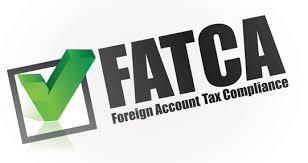NRO Bank Account – Any person resident outside India (other than a person resident in Nepal and Bhutan). (individuals / entities of Bangladesh / Pakistan nationality / ownership as well as erstwhile OCBs require prior approval of RBI). NRIs/PIOs/OCIs can open an NRO account. Under prevailing FEMA regulations, you will be considered an NRI if:
- You are residing overseas (except Nepal or Bhutan) for more than 182 days in one Financial Year (April–March); or
You have demonstrated an intent to go abroad or reside outside of India for an uncertain period:
- Resident Indian professionals even before going abroad for employment
- Students planning to study abroad
Seafarers who work on international ships
Trending Now – Who Can Open a NRE account with Bank ?
NRO Bank Account Features
- Can be opened as a savings as well as a current bank account.
- Allows you to make fixed and recurring deposits.
- Maintained with two or more NRIs/PIOs or a resident Indian on a former or survivor basis.* The resident joint holder can only operate the account with a Power of Attorney (PoA)/mandate from the primary NRI account holder.
Document Requires for Opening a NRO Account
- Passport;
- Proof of Address: Driving license, Voter’s ID issued by the Election Commission of India, proof of possession of Aadhaar number, job card issued by NREGA, letter issued by the National Population Register, Passport;
- Non-Residential status proof such as Visa/Work Permit/Residence Permit for Indian Passport holder or OCI Card/document evidencing India connect for Overseas Passport holder;
- For seafarer’s account: Copy of passport and visa, contract letter, etc;
- Permanent Account Number (PAN) card or Form 60 for opening savings bank account (if income in India is less than 3 lakh in a financial year). Please note, a PAN card is mandatory to open a current account;
- Foreign Account Tax Compliance Act (FATCA) declaration as applicable for the United States (US) or Common Reporting Standard (CRS) for the United Kingdom (UK), Canada or any of the 100+ countries that have adopted CRS.
Permissible credits in the NRO account
- Inward remittances
- Transfers from other NRO/NRE/FCNR (B) accounts
- Legitimate dues in India, such as sale/maturity proceeds of your investments in India, rental income, etc.
- Rupee gift/loan received (within limits prescribed under Liberalised Remittance Scheme) from a resident relative.
Permissible payments in India from the account
- Payments in India
- Outward remittances of current income without limit
- Transfer to other NRO accounts.
Repatriation of Funds
- Current income is freely repatriable without limit
- Capital income funds can be repatriated up to USD 1 million per Financial Year (April-March)
- The above repatriation is subject to necessary tax compliances and documentation
Income Tax implication on NRO Bank account
- TDS will be deducted at 30% plus applicable surcharge and cess on interest earned by a non-resident on NRO FD, RD and saving accounts .
- If India has a Double Taxation Avoidance Agreement (DTAA) with the country where he/she is a resident. then a lower rate of TDS will be applicable as per the respective DTAA will be deducted subject to the submission of required documents i.e. a Tax Residency Certificate (TRC), an online filled copy of Form 10F and a declaration stating that there is no Permanent Establishment (PE) in India. This is according to the provisions of the Income Tax Act, 1961 (IT Act)
- If your physical cash deposits/withdrawals in one or more accounts during the Financial Year (April-March) amount to ₹2 million or more, it is mandatory to hold a PAN card.
Operation in the NRO account
Operations by Power of Attorney in favour of a resident by the non-resident account holder.
- TDS will be deducted at 30% plus applicable surcharge and cess on interest earned by a non-resident on NRO FD, RD and saving accounts .
- If India has a Double Taxation Avoidance Agreement (DTAA) with the country where he/she is a resident. then a lower rate of TDS will be applicable as per the respective DTAA will be deducted subject to the submission of required documents i.e. a Tax Residency Certificate (TRC), an online filled copy of Form 10F and a declaration stating that there is no Permanent Establishment (PE) in India. This is according to the provisions of the Income Tax Act, 1961 (IT Act)
- If your physical cash deposits/withdrawals in one or more accounts during the Financial Year (April-March) amount to ₹2 million or more, it is mandatory to hold a PAN card.
Are You Not Satisfied ? – Check for More Solution here







Leave a Comment